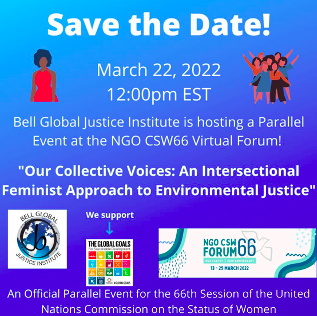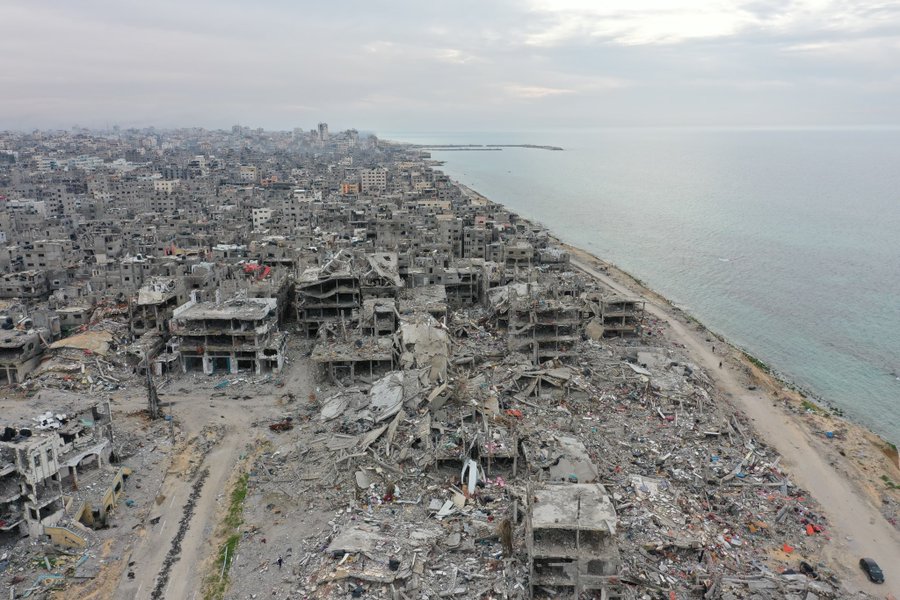Welcome to the first chapter of The Untold Journeys, a series where I will be exploring the lives of black professionals within the fields of international human rights, criminal justice, law, development, and humanitarian issues through a series of interviews.
This series summarizes their thoughts and experiences from their perspective and own words.
Exploring the WHY behind the passion
Growing up in Detroit, I was exposed to different cultural events within the metro Detroit area. From this, my parents introduced me to world music, which I cherish and have carried with me throughout college to law school. But it was after I became a lawyer I became very ill, moved back to Detroit, and could not work — I was isolated. I was trying to figure out my space in the world, I had this education, which led me to think back to what made me happy:
- world cultures
- being a citizen and how to advocate for vulnerable people
- people like me living the reality as a person of the BIPOC community
Once I became well enough, I went back to work full time at a community center where I organized policy for mental health and LGBTQ communities—after this; I earned my LLM Masters of Law in International Law.
Intersecting Identities
When working at the community center, I overcame and lived with my chronic illness. Still, I thought about intersectionality before I learned about it and even before knowing Dr. Kimberlé Crenshaw had created it. With this, I began to show up as myself to work. The Affirmations LGBTQ+ Community Center was my first time thrown into the advocacy work where I spoke with elected officials to participate in coalitions to organize significant events. From this, I learned the importance of Allyship. I am an ally of the LGBT community, and I learned how to be an effective ally to different communities. I believe this was an exchange because people could learn about me as a Black woman living with a disability. Especially during this powerful time as Barack Obama had just become president, and during this time is where I learned how to be a human rights activist, which was a special moment for me.
Developing and owning your voice
I didn’t always have my voice, and I didn’t express myself perfectly, particularly in law school, which was challenging and overwhelming. I was still introverted and afraid to speak up. At times, there were very few Black people in the class and living under a different socioeconomic class. But it was the experiences that I began to have. In contrast, in and after law school, where I was trying to diagnose my illness and almost died from rare pneumonia, I had to find my voice to speak up within the healthcare system because I wouldn’t even be here if I didn’t. I learned how poor people and Black women are treated in the medical field. Having lived these experiences, I put myself in the fight. Eventually, speaking up became more important to me than being afraid as I became more vocal. I also studied my heroes in revolutionaries such as Ida B. Wells, Dr. Martin Luther King, Malcolm X, and Langston Hughes, who helped me strengthen my voice. Still, my voice shakes, but God or [a] spirit comes over me and says it. And when I returned to my LLM program, I was not the same shy girl, and at one time in class, I just raised my hand and said, “Professor, I got a question,” and his response was “Oh dear”—this was a proud moment for me.
The pushback
When I was working at the community center, most of the staff, except just me and two other people, were a part of the LGBTQIA community. They did not know me well, but they knew my mom, and my mom identifies as a lesbian, So I grew up knowing the community, understanding the culture, but they didn’t know me. So I had to come in and gain their trust. I am from the outside, listening and doing my research, not relying on the community to educate me as many people do. I was there to work alongside the community, not save or rescue anyone. I’m here working in the background or side-by-side, not to be ahead of anyone because they know what they need and who they want in their space, so I learned to be an ally. Now I eventually went on to receive my LLM. I realized that the human rights arena is dominated by people[not] of color, women, and highly educated people; there is even a lack of representation on my Zoom calls with people who are not generally impacted by what’s happening in the world. I am constantly advocating for the inclusion of people living within different intersections, including people in lower socioeconomic areas because I’m from [the inner city of Detroit] .
Honing in on your skills in the field of human rights
I think it’s important for young people to find ways to create spaces for themselves. As a young person of color, understand that you will be in areas where many people will not look like you, so it is important for someone interested in getting into this field to prepare themselves through formal and informal education. Because not everyone can afford to go to college, continue to strengthen your knowledge and skills, take free online courses, read narratives of people impacted by international human rights violations, and learn about the histories of different countries and the incidents that happened. Market yourself, create a website, blog about various issues, and share your findings. Find opportunities for speaking engagements, attend events you are passionate about, find mentors in the field, and surround yourself with like-minded people. And joining organizations like UNA-USA is a fabulous way of getting connected, not just for potential jobs but to broaden your knowledge about the US interactions. Lastly, it is really important to take care of yourself, bring your authentic voice, and as Billy Porter said, “Be yourself; the world will adjust.”
Navigating imposter syndrome as a Black person
Well, first, I want to say that I even heard Michelle Obama say that she had [imposter syndrome], and I’m like, so it’s not just me! So short answer: I do still experience imposter syndrome quite a bit. After calming down, I try to remember how hard I worked to get my bachelor’s, JD, and LLM. I remembered things that I’ve accomplished in my life: living with a chronic illness and obtaining my LLM, going to South Africa by myself and being there for three weeks (I never had traveled or had a passport). I remembered what I did, showed my courage and bravery and reminded me that I survived my worst days; here, y’all stuck with me, open the door cus I’m coming in! I am supposed to be here, I earned this spot, and when I feel that way, talking to my mom and my sister, people who love me and know my strengths and know how hard I worked — those are good reminders. I also continue to be inspired by ancestors, heroes, and leaders, particularly African descent leaders, and knowing what they have endured to have or be where they are. I remember Nelson Mandela’s book where to Robben Island and survived. I used to be self-conscious about wearing oxygen, and in 2015, they put me back on oxygen, which was in the midst of really building myself in the international law realm. I just started showing up, I received stares from colleagues, and people would ask many questions. I remember when I went to the UN for our global engagement summit, everyone was looking around and [I thought] — “Yes, it’s me…people will adjust”. So in those moments of imposter syndrome, I would like to remind young people to
- Think of three things you have accomplished and remind yourself how powerful you are.
- If you are in college or learning your trade, remember life may put you on a different path
Think of three things that you have accomplished— there are 100 things, but if you could recall those three things at that moment that you have accomplished that have moved you into this space, and remind yourself how powerful you are. If you are in college or learning your trade, you’re trying to find your way to remember that life isn’t always going to happen the way you expect it to. This means that you are being put on a different path that you didn’t expect but know that you will get to where you’re supposed to be. Many young people may feel like they failed, but you accomplished a lot. There is no timeline.
Self-Care in human rights
I am in therapy, which I think is great. I think everybody should be in therapy, and I advocate for it. The other thing I do is when I’m having anxiety like really bad days, I go back to my childhood and revisit the things that made me happy, like what I was doing at nine — I was watching the three stooges. I would watch my favorite TV shows, eat my favorite foods. I try to eat well, stay hydrated, and healthy self-care is important to your work, and I want young people to understand that self-care should be a part of your overall work because you need your cup filled with giving yourself. After all, this field of human rights and its components is a lot.
How to begin your journey finding your why!
Look into yourself and do the inner work, exploring why you want to do this work from the inside. What was that spark for you, and where did this come from? Journaling is one way to learn from this and talk to people in the field. You are reading books about the area from different points of view, thinking about your own life and how you have been impacted, the social issues in your community in your life. Learn as much as you can and know that you cannot take it all on. Become an expert and strengthen your expertise in one form.




